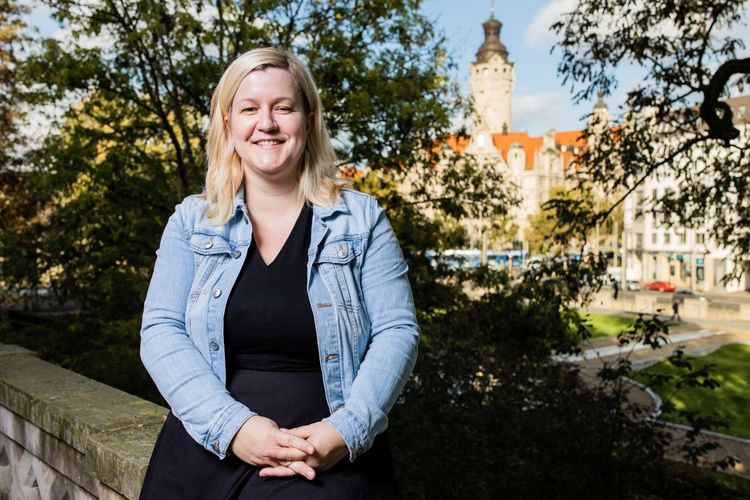Ms Melms, how can a formal set of rules help prevent academic misconduct?
The statutes summarise fundamental values and standards in academic work, which form the prerequisites for honest thought and actions. They in turn are based on principles of good academic practice developed by the scientific community, guidelines to ensure their application, and safeguards against violations.
With the statutes, the University thus establishes a framework for academic work. The communication of good academic practice plays just as important a role as transparent conflict management and appropriate career support.
The University’s statutes also guarantee the requirements for compliance with legal and ethical standards. Dealing with academic misconduct appropriately, for example by means of the organisational and procedural regulations of an assessment procedure, is an important component of good academic practice and can help to prevent academic misconduct in the first place.
The statutes list specific requirements for good academic practice. How did the University decide on these?
The statutes were prepared using the German Research Foundation’s Memorandum on Safeguarding Good Scientific Practice (Bonn, 2013) and its Code of Conduct Guidelines for Safeguarding Good Research Practice (Bonn, 2019). Based on current standards in research, we also considered international frameworks, such as the European Code of Conduct for Research Integrity and the guidelines of the Committee on Publication Ethics, as well as declarations by academic societies.
What is new in the revised version of the statutes?
The new version of the statutes is the result of a comprehensive revision process. With that in mind, I would like to thank the working group and all stakeholders who accompanied and supported the implementation.
The revision involved specifying the principles of good academic practice and the framework for dealing with suspected cases of academic misconduct. One example is how we have broadened the definition of academic misconduct: in addition to intentional or grossly negligent misrepresentation, infringement of intellectual property, and obstruction of research activities, the new version now also regards refusal to cooperate as well as breach of confidentiality in assessment procedures and violations of the principles of appropriate supervision as academic misconduct.
The new version also strengthens the rights of early career researchers as well as those of whistle-blowers and affected parties. The specification and design of organisational and procedural regulations lead to an effective procedure for dealing with suspected cases.
I would be happy to present the new version in more detail upon request. In addition, as of this year I now offer workshops for doctoral researchers on good academic practice, in which the contents of the statutes play a central role. Anyone who is interested is welcome to email the Office of Ombudspersons.
You mentioned that the new version strengthens the rights of early career researchers in relation to their supervisors. What does this mean exactly?
Early career researchers are entitled to regular supervision, advice and support. Against this backdrop, the statutes specify the responsibility on the part of the supervisor. Researchers in leadership and/or supervisory roles are responsible for ensuring that a group as a whole can fulfil its tasks, that the necessary cooperation and coordination takes place, and that all members are aware of their roles, rights and responsibilities. In addition to regular communication, this also includes a mix of support and personal responsibility that is appropriate to each individual’s career level.
It is important to enter into a supervision agreement, which provides a binding definition of the conditions in the individual case as well as of the rights and responsibilities of the supervisor and the doctoral researcher. The statutes stipulate that the doctoral degree regulations should contain a clause obliging all parties to comply with this agreement.
The statutes also stipulate that abuse of power and exploitation of dependencies must be prevented, both at the level of individual academic units and at the level of the management of the academic institution.
Who can members of the University community contact if they observe academic misconduct?
Leipzig University’s Office of Ombudspersons supports and advises researchers on matters concerning good academic practice, and how this can be undermined by academic dishonesty. Members of the Leipzig University community can first seek advice on specific cases from an ombudsperson or the Office of Ombudspersons, without this triggering an official review by an ombudsperson. Suspected cases of academic misconduct can also be reported anonymously to the office.
What options does the University have when it comes to combatting academic misconduct?
The assessment procedure at Leipzig University is two-tiered. An ombudsperson first hears the informing and/or affected persons and reviews from the perspective of plausibility whether the allegations can be dispelled and/or an amicable solution can be reached between the complainant and the accused. If the ombudsperson is unable to resolve the allegations or if no agreement can be reached, the matter will be referred to the Standing Committee for Investigating Allegations of Academic Misconduct. The latter decides whether the preliminary inquiry is to be discontinued or whether a formal investigation should be opened in order to establish the facts and take a final decision.
The Rector is notified whenever a formal investigation is opened. If the Standing Committee considers academic misconduct to have been proven, it reports to the Rector in writing on the results of its investigations and proposes the manner in which the procedure should be continued. This may involve disciplinary measures under employment, public service, civil and criminal law, as well as academic sanctions. However, the statutes also provide for consideration of structural changes that may prevent the recurrence of academic misconduct.


Comments
No comments found!